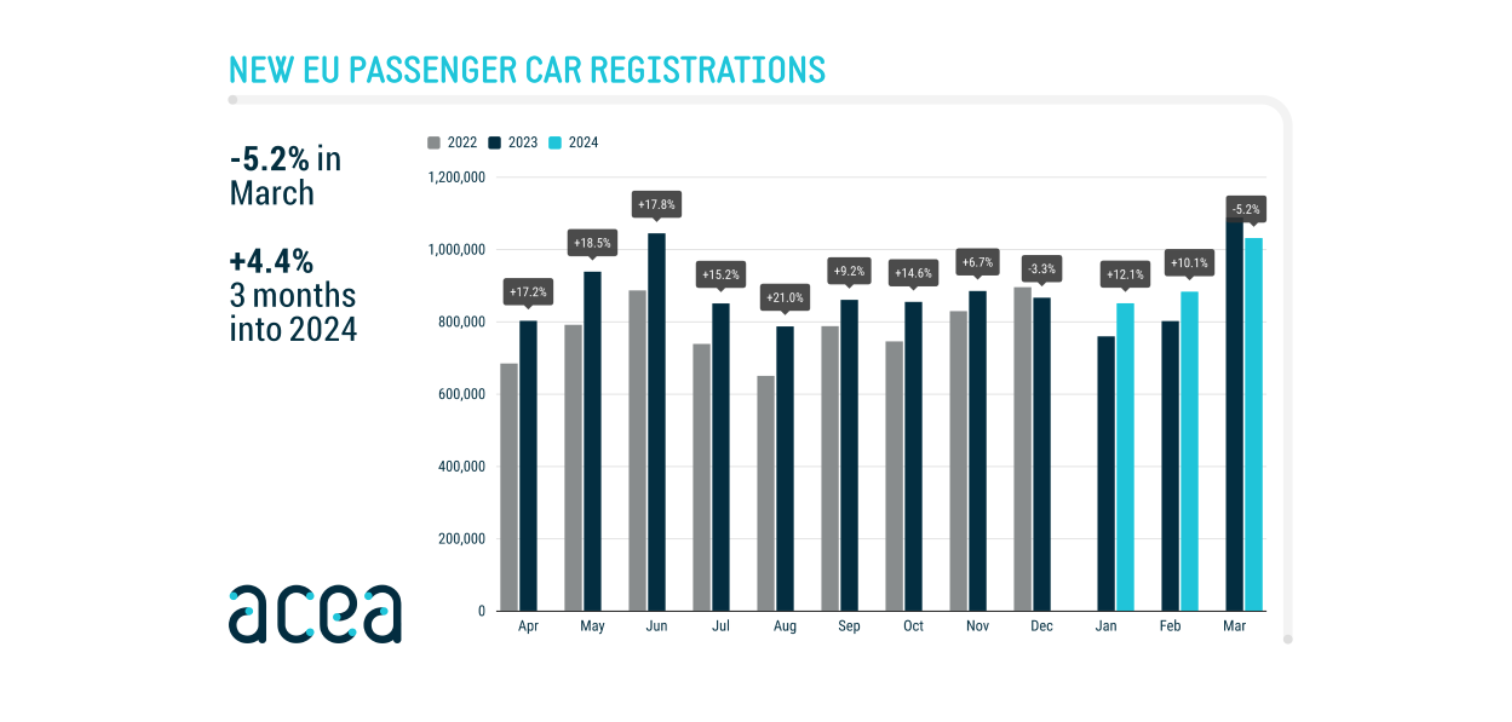
EU new car registrations: -5,2% in March, +4,4% in Q1

In March, the EU car sales were down some 5% compared to last year /ACEA
According to data from the European Manufacturers Association (ACEA), the European Union car market experienced its first decline of the yea


Comments
Ready to join the conversation?
You must be an active subscriber to leave a comment.
Subscribe Today